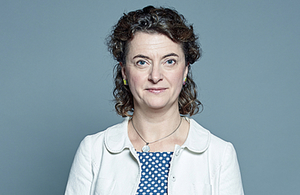Revolutionary resurfacing on the A1 in Northumberland
National Highways will be trialling the use of graphene – a material only one atom thick – in its road surfacing to see if it prolongs its lifespan.
If successful, using this high-tech product could see the operational life of key road features extended by a number of years, reducing the frequency of roadworks and making journeys for road users smoother and more reliable.
The revolutionary resurfacing will take place along three miles of the northbound carriageway between Newton on the Moor and West Cawledge, south of Alnwick, from Sunday 19 September to Monday 1 November.
National Highways Asset Needs Manager Graeme Watt said:
This is an exciting time for National Highways. We are constantly striving to improve the journeys of our customers and graphene has real potential to do that.
Laboratory trials have been a success and the on-site trials in Northumberland will be a world first use of graphene in road production, which enforces our commitment to innovation and helps to push the industry towards more carbon-friendly maintenance with longer-lasting solutions which we all benefit from.
Graphene’s benefits are industry-changing. It’s stronger than steel and adding it to other materials can turn them into super materials. From what we’ve seen so far, it could make some of our assets last significantly longer.
Graphene is the name for a single sheet of carbon atoms, arranged in a honeycomb pattern. It is the building block of graphite — pencil lead — and is an incredibly strong, conductive and flexible material. It can be used in a wide range of applications, from aerospace engineering to digital electronics and biomedicine.
National Highways is carrying out the trials with the Graphene Engineering Innovation Centre (GEIC) at The University of Manchester and Pavement Testing Services (PTS).
To carry out the resurfacing safely and efficiently, the northbound carriageway will be closed 24/7, with traffic running in a contraflow, one lane in each direction, on the southbound carriageway. A number of crossovers will be closed and clearly signed diversions will be in place.
National Highways will also be resurfacing both carriageways of the A1 between Purdy Lodge and Detchant, although this work is not part of the graphene trial.
The work begins a week earlier on Monday 13 September and is due to be complete on 3 November. It will then be followed by sign replacement until the end of the month. Work will take place overnight Monday to Friday 8pm to 6am.
During the essential maintenance, which will give road users a safer, smoother journey, there will be various traffic management measures in place including full closures of the A1, junction closures and traffic being controlled by temporary lights and then taken through the work area by convoy.
Clearly signed diversions will be in place.
Details of both schemes are available at the Yorkshire and North East maintenance schemes web page.
General enquiries
Members of the public should contact the National Highways customer contact centre on 0300 123 5000.
Media enquiries
Journalists should contact the National Highways press office on 0844 693 1448 and use the menu to speak to the most appropriate press officer.
